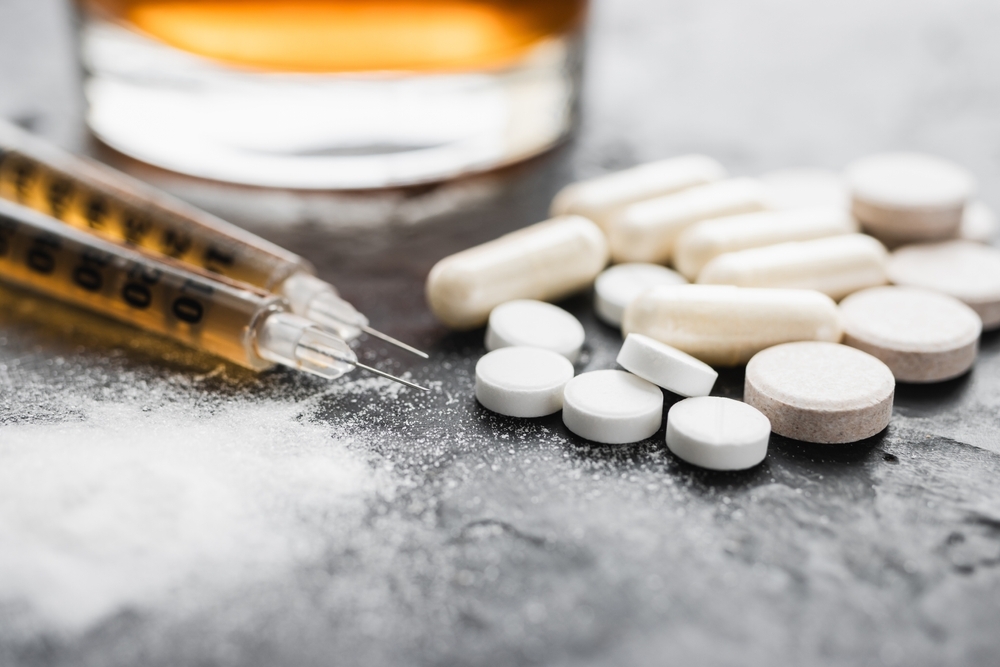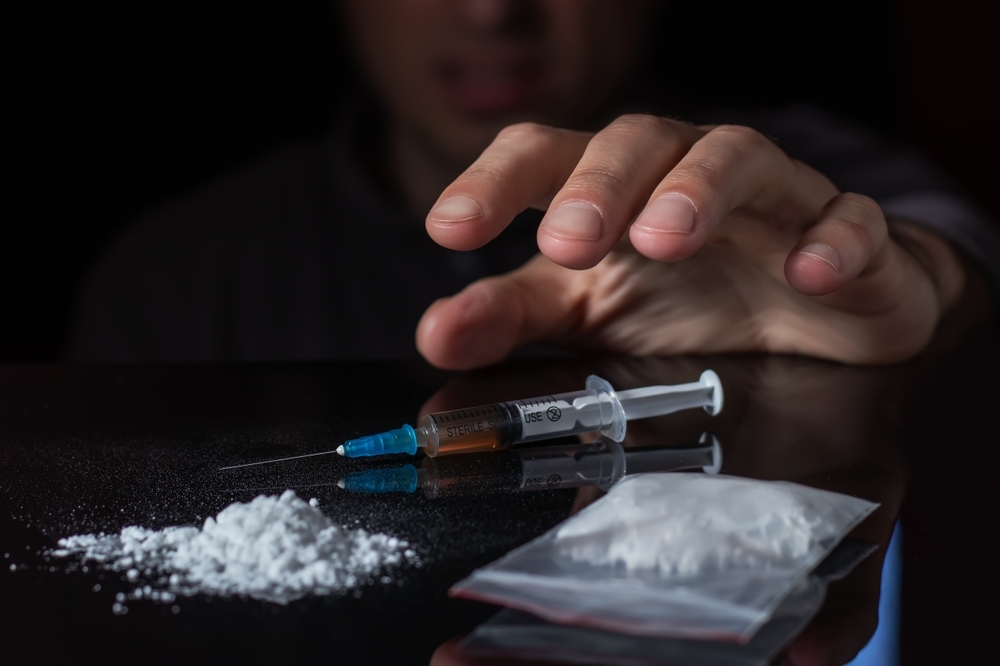
Written by:

Medically Reviewed by:
Last Updated:
June 4th, 2025
Heroin Addiction | Signs, Symptoms & Effects
Heroin addiction doesn’t discriminate; it can take hold of anyone and turn their life upside down. It’s a harsh reality faced by countless individuals, tearing families and communities apart. But drug addiction isn’t about weakness or poor choices; it’s rooted in complex emotional, physical, and psychological factors that can affect anyone. At Linwood House, we believe recovery is possible for everyone, and we’re here to help you find your way back.
What is heroin?
Heroin is a dangerously addictive drug made from morphine, a powerful pain-relief chemical found naturally in opium poppy plants. On the streets, heroin is usually sold as a white or brown powder, although it can also be found in a sticky black form that is usually called “black tar heroin”.
Heroin is used by injecting, smoking or snorting the drug. It turns to morphine in your body and hits your brain rapidly, creating intense feelings of joy and calm. However, the price of heroin abuse can be extremely high and comes with a whole host of risks, including heroin overdose and addiction. Because of its dangers and lack of medical benefit, heroin is strictly banned in the United Kingdom, and you put yourself at huge legal risk for using, selling or manufacturing it.
What is heroin addiction?
Heroin addiction happens when your brain becomes stuck in a cycle of craving and chasing the drug, no matter how much pain or trouble it causes you. Each time heroin is used, your brain learns to associate it with intense pleasure, eventually rewiring itself to seek heroin above anything else. Because of this powerful shift in your brain chemistry, breaking free from heroin’s grip can feel overwhelmingly difficult, even when you know it’s causing you real harm.
Heroin UK addiction and deaths
Heroin UK numbers for addiction and deaths have remained worryingly high for decades and increased year on year. In 2023, heroin and morphine were the most commonly found opioids in overdose deaths, with tests usually unable to tell them apart. In that one year alone, there were 1,453 deaths in the UK (equivalent to around 25 deaths per million people). To put that into perspective, it is the largest number of deaths from heroin and morphine since records began in 1993.
How does heroin addiction happen?
Heroin works by mimicking natural brain chemicals, quickly binding to your opioid receptors and unleashing a flood of dopamine. This dopamine surge feels great and creates an irresistible desire to use heroin again and again.
But as heroin abuse continues, your brain adjusts, so you will start craving more and more of it to get high or relax. This is called “tolerance”, and it usually leads to increased heroin use until you are physically dependent on it. Once that happens, it can be so hard to stop because you will enter heroin withdrawal, which brings a whole load of uncomfortable and unpleasant symptoms. These may include:
- Unbearable cravings
- Cold sweats
- Severe nausea
- Diarrhoea
- Muscle pain
- Hallucinations
As well as this physical bit of heroin addiction, many people also use heroin as a dangerous but initially effective way of dealing with everything from stress to trauma. However, as heroin becomes the only thing that seems to work for managing these issues, you become psychologically and mentally dependent on it as well as physically trapped.
Heroin addiction symptoms to look out for
Any amount of heroin abuse is dangerous and illegal, so you should be taking steps to quit even if you are not sure whether you are addicted yet. However, if you are worried that your heroin use has crossed that line, here are some heroin addiction signs you can look for:
- Feeling powerful cravings to use heroin regularly, even when you don’t want to.
- Quitting for a while and then experiencing withdrawal symptoms like sickness, anxiety or muscle aches, which make you relapse.
- Spending large amounts of your day in a cycle of finding heroin, taking it and coming down from the effects.
- Regularly using more heroin than you had planned to or taking it more often than you realise.
- Not paying attention to your family, job or other personal responsibilities because heroin use has become more important to you.
- Continuing to use heroin despite clearly seeing it damage your health and life.
If you notice these heroin addiction signs, you should seek immediate professional drug detox and rehab treatment.
Why is heroin addictive to some users more than others?
Heroin addiction can affect anyone, but some things in life can increase the risk. Knowing these risk factors can help you avoid slipping into addiction in the first place. They will also need to be addressed during treatment for lasting recovery if you do become addicted to heroin:
- Increased addiction risk due to genetics
- Early drug experiences
- Mental health problems and using heroin as medication
- Environments where stress, poverty or drug use are prevalent
- Heroin use in social circles
- History of painkiller misuse and transitioning to heroin due to cost or availability
What harm do heroin abuse and addiction cause?
The consequences of heroin abuse and the resulting addiction are enormous for both your health and your personal life.
Heroin overdose is the most pressing danger as heroin itself can be lethal, and this risk is only increased with unknown substances used to cut the drug. If someone is struggling to breathe, their skin has turned pale, cold and sweaty, their pupils reduced to pinpoints, or their lips or fingernails have turned blue, these are serious early signs of a heroin overdose. They may then become unresponsive, pass out or start having seizures, and if they don’t receive treatment, death can occur.
Aside from heroin overdose, sharing needles or doing risky things when you have been using heroin can expose you to deadly infections like HIV or hepatitis C.
Frequent injection also damages your veins, while snorting heroin harms your nasal passages, and long-term use seriously damages organs like your liver and kidneys.
Heroin addiction weakens your immune system, making illnesses like pneumonia more common and can cause persistent stomach issues, sexual problems and severe weight loss due to poor nutrition.
Emotionally, heroin use can worsen mental health issues, leaving you anxious, depressed or isolated.
On top of all these, the financial strain, relationship breakdowns and potential legal issues from heroin addiction can also destroy your personal life and prospects for the future.
What are the three stages of treating heroin addiction?
Successful heroin addiction treatment involves a three-stage approach at Linwood House. We offer detox for professionally managed withdrawal, drug rehab so you can work through personal addiction triggers and symptoms and aftercare to support you after treatment. We can also help to manage any co-occurring mental health and addiction issues so the former doesn’t cause a heroin relapse later on.
Seek help for heroin addiction today
If you or anyone you care about is struggling with heroin addiction, the best step you can take is to reach out for help. Linwood House provides a supportive, judgement-free treatment that can help you break free and start living again. Contact us today, and let us take care of the rest.
Frequently asked questions
(Click here to see works cited)
- NCBI. “Heroin Toxicity – StatPearls.” NCBI, https://www.ncbi.nlm.nih.gov/books/NBK430736/. Accessed 12 April 2025.
- Office for National Statistics. “Deaths related to drug poisoning in England and Wales: 2023 registrations.” Office for National Statistics, 23 October 2024, https://www.ons.gov.uk/peoplepopulationandcommunity/birthsdeathsandmarriages/deaths/bulletins/deathsrelatedtodrugpoisoninginenglandandwales/2023registrations. Accessed 12 April 2025.
- NCBI. “Opioid Use Disorder – StatPearls.” NCBI, 17 January 2024, https://www.ncbi.nlm.nih.gov/books/NBK553166/. Accessed 12 April 2025.
- UK Rehab. “Heroin Addiction – UK-Rehab.” UK Rehab, https://www.uk-rehab.com/drug-addiction/heroin/. Accessed 12 April 2025.





